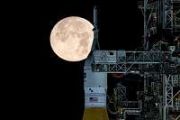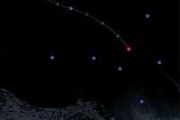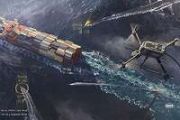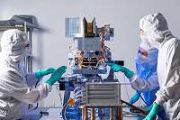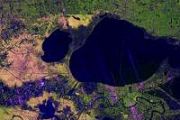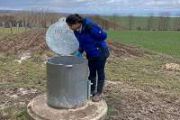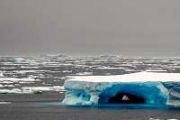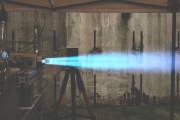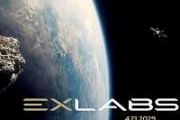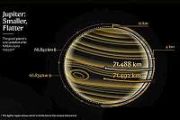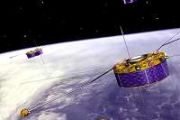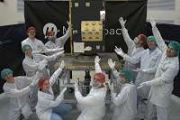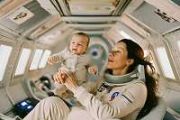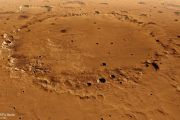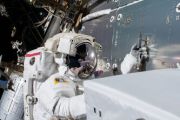
Copernical Team
Rolling for science: Mars orbiter learns new moves after nearly 20 years in space
This request seems a bit unusual, so we need to confirm that you're human. Please press and hold the button until it turns completely green. Thank you for your cooperation!
Press and hold the button
If you believe this is an error, please contact our support team.
185.132.36.159 : 10e1c2fd-9241-4f6b-9f83-ee737ca3
Ax-4 joins the International Space Station
 Video:
00:02:36
Video:
00:02:36
On 26 June 2025 ESA project astronaut Sławosz Uznański-Wiśniewski from Poland and his crewmates arrived to the International Space Station on the Axiom-4 mission (Ax-4).
The Polish project astronaut is the second of a new generation of European astronauts to fly on a commercial human spaceflight opportunity with Axiom Space.
Sponsored by the Polish government and supported by ESA, the Polish Ministry of Economic Development and Technology (MRiT), and the Polish Space Agency (POLSA), the mission will include an ambitious technological and scientific programme with several experiments led by ESA and proposed by the Polish space industry.
International Space Station welcomes its first astronauts from India, Poland and Hungary
This request seems a bit unusual, so we need to confirm that you're human. Please press and hold the button until it turns completely green. Thank you for your cooperation!
Press and hold the button
If you believe this is an error, please contact our support team.
185.132.36.159 : 25b45e2b-ade8-4bc8-89f0-2825aa12
Space-grown muscle tissues reveal rapid aging-like decline in microgravity
This request seems a bit unusual, so we need to confirm that you're human. Please press and hold the button until it turns completely green. Thank you for your cooperation!
Press and hold the button
If you believe this is an error, please contact our support team.
185.132.36.159 : c3d61271-b438-4c06-9ff4-b90e9378
Living Planet Symposium Extra News: Day 4

The fourth day of ESA’s Living Planet Symposium was busier than ever.
Today, ESA signed an agreement on integrating satellite data into global environmental reporting frameworks as part of ESA’s Fundamental Data Records Framework. A contract with the Finnish government and the Finnish Meteorological Institute was signed to establish a calibration and validation ‘supersite’. ESA and the Taskforce on Nature-related Financial Disclosures paved the way to integrating satellite data into environmental reporting frameworks. And the New Space Scout missions were also in the spotlight as ESA signed a contract with ISISPACE to development of the Tango mission. Four new
New ESA gravity mission to detect weakening ocean conveyor

At the Living Planet Symposium, attendees have been hearing how ESA’s Next Generation Gravity Mission could provide the first opportunity to directly track a vital ocean circulation system that warms our planet – but is now weakening, risking a possible collapse with far-reaching consequences.
EU's Space Act would track space objects and clear satellite debris
 The European Commission made a proposal Wednesday to clean up Europe's space sector while also reducing its footprint and making sure its satellites are better protected from hackers.
In a press release, the commission said it wants to enact the EU Space Act, which it describes as a "new set of ambitious measures to make Europe's space sector cleaner, safer and more competitive in Europ
The European Commission made a proposal Wednesday to clean up Europe's space sector while also reducing its footprint and making sure its satellites are better protected from hackers.
In a press release, the commission said it wants to enact the EU Space Act, which it describes as a "new set of ambitious measures to make Europe's space sector cleaner, safer and more competitive in Europ Muon Space Expands Earth Imaging Capabilities with Launch of Hydrosat Thermal Mission
 Muon Space has successfully launched Hydrosat's VanZyl-2 satellite, the latest in a series of missions built on its custom-designed Halo platform. Deployed aboard SpaceX's Transporter-14 mission from Vandenberg Space Force Base, the spacecraft established contact just six minutes after deployment and is now undergoing commissioning.
VanZyl-2 carries advanced multispectral and thermal infra
Muon Space has successfully launched Hydrosat's VanZyl-2 satellite, the latest in a series of missions built on its custom-designed Halo platform. Deployed aboard SpaceX's Transporter-14 mission from Vandenberg Space Force Base, the spacecraft established contact just six minutes after deployment and is now undergoing commissioning.
VanZyl-2 carries advanced multispectral and thermal infra New exoplanet discovery reveals rare gas giant through global citizen science effort
 A collaborative team of astronomers led by The University of New Mexico has confirmed a rare gas giant exoplanet, TOI-4465 b, located about 400 light-years from Earth. The discovery was enabled by a worldwide network of citizen scientists and detailed in The Astronomical Journal, with UNM Postdoctoral Fellow Zahra Essack as lead author and Assistant Professor Diana Dragomir as co-author.
T
A collaborative team of astronomers led by The University of New Mexico has confirmed a rare gas giant exoplanet, TOI-4465 b, located about 400 light-years from Earth. The discovery was enabled by a worldwide network of citizen scientists and detailed in The Astronomical Journal, with UNM Postdoctoral Fellow Zahra Essack as lead author and Assistant Professor Diana Dragomir as co-author.
T James Webb reveals sub-Saturn mass exoplanet in young star system
 The James Webb Space Telescope (JWST) has directly imaged a previously unknown exoplanet, marking a significant milestone since the telescope's launch in 2022. Led by a CNRS researcher at the Observatoire de Paris-PSL and Universite Grenoble Alpes, the discovery was enabled by a coronagraph developed in France and installed on JWST's MIRI instrument.
This technology, created through a CNRS
The James Webb Space Telescope (JWST) has directly imaged a previously unknown exoplanet, marking a significant milestone since the telescope's launch in 2022. Led by a CNRS researcher at the Observatoire de Paris-PSL and Universite Grenoble Alpes, the discovery was enabled by a coronagraph developed in France and installed on JWST's MIRI instrument.
This technology, created through a CNRS 

